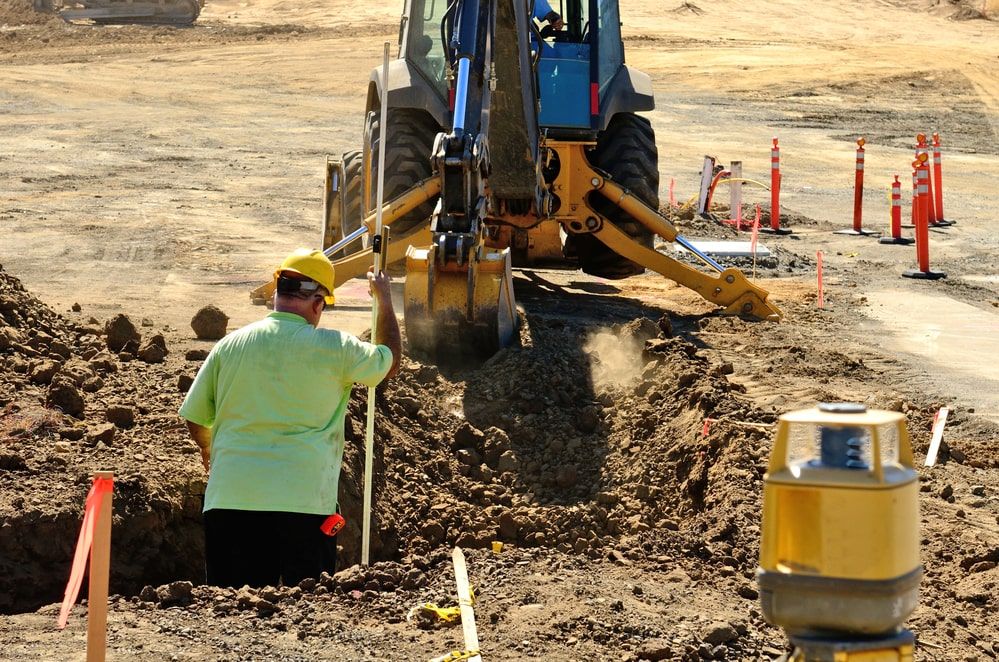Best Dump Truck Companies in Ohio - Top-Rated Dump Truck Providers
Best Dump Truck Companies in Ohio - Top-Rated Dump Truck Providers
Blog Article
Comprehensive Excavation Approaches: Grasping the Basics for Success
In the realm of construction and civil engineering, the significance of reliable excavation techniques can not be overstated. The careful planning, specific execution, and careful attention to detail needed in excavation projects demand a detailed technique that includes various fundamental elements. From first soil analysis to the execution of safety and security actions and routine progress monitoring, understanding these core aspects is vital for attaining success in any excavation undertaking. Nonetheless, the real proficiency lies not merely in comprehending these basics however in perfectly integrating them to navigate the intricacies of excavation tasks with skill.
Understanding Excavation Project Planning

Effective excavation projects are improved the structure of meticulous and detailed preparation. The preliminary stage of any kind of excavation job is the drawing board, where important decisions are made that can dramatically affect the end result of the job. Throughout this stage, it is important to gather all relevant details about the site, consisting of topographical surveys, soil structure, and any kind of prospective hazards that may exist. Comprehending the project scope, budget plan, and timeline restraints is vital for creating a thorough excavation plan that guarantees the job's success.
One secret facet of excavation project planning is the development of a comprehensive timeline that describes the series of tasks, target dates, and milestones. This timeline offers as a roadmap for the task team, enabling them to track development and make needed modifications to make sure the project remains on timetable. Additionally, a distinct budget that represents all expenditures, consisting of devices rental, labor costs, and products, is crucial for staying clear of expense overruns and hold-ups. By carefully taking into consideration all these factors during the planning stage, excavation projects can be carried out effectively and efficiently, leading to effective outcomes.
Soil Evaluation and Website Evaluation
Carrying out thorough soil evaluation and site analysis is a vital action in the preparation phase of any type of excavation project. Dirt analysis entails determining the structure, structure, and residential or commercial properties of the dirt at the excavation site. This info is critical for understanding the soil's bearing ability, moisture material, and possibility for erosion, which are crucial factors in identifying the excavation techniques and tools required for the task.
Site examination surpasses dirt evaluation and includes a broader evaluation of the overall website conditions. This examination consists of recognizing any kind of possible risks, such as below ground energies, ecological worries, or unstable surface, that might impact the excavation process. By completely evaluating the site, project managers can create reliable excavation techniques that prioritize security, efficiency, and ecological security.
Utilizing advanced modern technologies like ground-penetrating radar, dirt sampling, and drone surveys can enhance the precision and effectiveness of dirt analysis and site assessment. Spending time and sources in these initial steps can eventually save time and prevent pricey hold-ups or issues throughout the excavation process.
Tools Choice and Use
Efficient excavation projects depend heavily on calculated tools selection and utilization to guarantee optimal performance and efficiency. Picking the ideal equipment for the work is important in maximizing efficiency and reducing downtime. Elements such as the sort of soil, deepness of excavation, and project range play a significant duty in identifying the most appropriate devices for the task at hand.

Along with choosing the suitable devices, appropriate utilization is crucial to job success. Operators should be trained to take care of the tools securely and efficiently - excavating ohio. Normal maintenance checks and prompt repair services aid protect against breakdowns and guarantee consistent efficiency throughout the task
Security Procedures and Regulations Conformity
In the realm of excavation tasks, prioritizing precaution and compliance with guidelines is vital to guaranteeing a legally audio and safe operational atmosphere. Precaution include a series of methods, including carrying out complete website evaluations, applying correct signs and barriers, and offering appropriate safety training for all employees associated with the excavation process. Adherence to laws, such as OSHA requirements in the United States, makes sure that the excavation task satisfies the required standards to shield workers, spectators, and the surrounding environment.

Monitoring Development and Adjusting Methods
Exactly how can project managers properly track the development of excavation tasks and adapt their methods accordingly to enhance end results? Monitoring development is vital for making certain that explanation excavation projects remain on track and fulfill deadlines.

Conclusion
Finally, understanding the basics of comprehensive excavation approaches is necessary for the success of any type of task. By comprehending project preparation, evaluating dirt and site problems, choosing ideal devices, complying with safety and security policies, and monitoring development, task managers can make certain a efficient and smooth excavation process. Implementing these methods will certainly result in effective outcomes and lessen potential dangers or troubles during the excavation job.
The first phase of any type of excavation task is the preparation stage, where critical decisions are made that can significantly affect the end result of the task. Comprehending the job budget plan, extent, and timeline restrictions is critical for creating an extensive excavation strategy that makes certain the project's success.
How can forecast managers successfully track the advancement of excavation jobs and adapt their methods as necessary to maximize end results? By closely keeping an eye on progression and being willing Look At This to adapt techniques, job supervisors can boost the total success of excavation projects.
By understanding job preparation, assessing dirt and website problems, picking appropriate equipment, complying with security laws, and monitoring progress, project supervisors can make certain a efficient and smooth excavation procedure.
Report this page